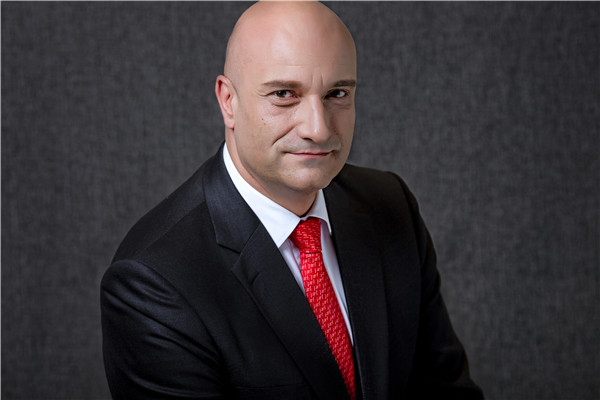
1. 您进入酒店行业已近二十八年,在酒店收益管理,财务管理,餐饮运营上都有着非常丰富的经验和资深的阅历。可以跟我们分享下您的一些酒店管理经验和心得体会吗?您又打算如何将自己的酒店管理理念与南京威斯汀大酒店的酒店文化相融合呢?
酒店行业是我年少时就明确的目标。90年代我曾在瑞士圣莫里茨的一家小旅馆当过厨师学徒,开启了我的职业生涯。在学习酒店管理之前,我遍游欧洲,并在英国和法国工作过。学校毕业后,我开始为万豪家族的成员喜达屋工作,我在喜达屋工作超过18年,在亚洲和欧洲的喜来登 、艾美、瑞吉、威斯汀等品牌的酒店任职过。一开始我主要在运营部门工作如厨师、服务生,后来涉及夜班审计师、财务、工程、采购和餐饮管理等。酒店行业令人兴奋的地方就在于业务的多样化,酒店经理需要掌握各种的学科技能,多年的积累与挑战也让我扩展了不同领域的知识和技能。不仅于此,我的工作还让我有机会培养了许多优秀的管理人才,并见证他们从稚嫩走向独当一面的管理者,这些成长起来的员工会影响着酒店业今后的发展。每家酒店都有各自的独特的特色及需求,因此,调整策略以适应市场和客人的需求非常重要,对我而言,要有可以使企业利润逐渐提高的长期战略。我的座右铭是今天可以比昨天做得更好,学习不仅是商业成功秘诀,也是一个人社交生活的金药匙。威斯汀是一个充满个性的品牌,您可在威斯汀享受营养美味、酣然好梦、活力运动、舒畅身心、高效工作、妙趣玩乐,领略无限精彩; 地处城市商圈地段的南京威斯汀大酒店,面朝紫金山,俯瞰玄武湖,每间客房都能欣赏湖景,然而有利的地理位置对于客人忠诚度的影响远不如品牌魅力来的强大,保持品牌的独特个性,激发员工尽其所能打造优质服务才是制胜关键。
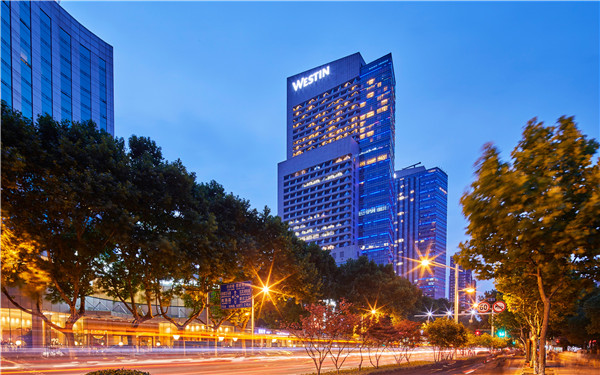

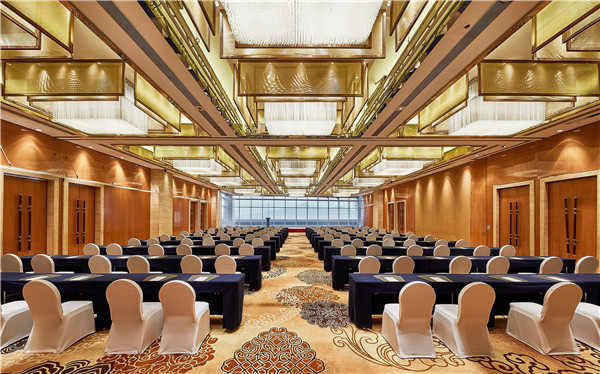
2. 威斯汀一直以来就是一个独具特色,内涵丰富的品牌,我们了解到您热衷于手机图片摄影,同时对视频拍摄和艺术设计方面都很有兴趣,可以简单说一下,这些对于酒店品牌推广及市场运营及定位有什么样的帮助吗?
我的职业生涯是从厨师开始的,我喜欢在烹饪,美食的创新配上创意摆盘让我获得满足感。而管理层的工作不同于烹饪,不能即时看到成果,需要随着时间的发展慢慢显现。为了弥补这个遗憾,我开始探索摄影,用摄影去捕捉和保存让我快乐的美好瞬间。我生长在充满艺术气息的家族,我从母亲那学了很多。科学技术飞速发展使我经历了模拟技术到数字技术发展转变,以及现在时兴的移动摄影,这让我很兴奋,尤其是图像摄影的技术不断革新,用一部手机就能独立创作。我发现把酒店管理和摄影技术相结合才是完美的组合。酒店工作是一种销售体验和情感的工作,这些体验和情感塑造了酒店客人的感知价值,这是他们消费体验的结果。图片和视频以设计和感知的美来触发情感,在决策过程中唤起个人情感,这就是我喜欢视觉媒介的原因。近几年来,全球数字营销的发展趋势迅猛,在中国更是飞速,在微信、微博、视频等领域不断推陈出新,它的影响在酒店面对年轻化的客人群体时尤为明显。幸运的是,科技让每个人都有机会参与市场推广中来,帮助品牌和酒店取得成功。
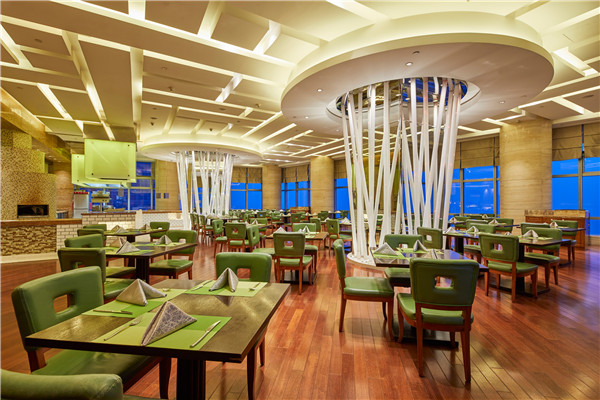
3. 我们知道您非常善于发掘和学习新鲜事物,也会将自己常用的一些时下先进的APP或软件以及做事情的方法跟您的团队分享,平时您跟您的团队分享的最多的是什么?您希望在您的带领下,您的团队呈现出怎样的精神面貌、工作态度以及解决问题的思维方式?
这是一个有趣的值得深思总结的问题。我对每个人基本的要求是:准时、敬业、礼貌和愿意学习,这也是酒店工作最基本的标准。更深层次的标准则取决于员工对职位的渴望,以及职位对人能力的要求。总的来说,创造思维和个性想法是我最欣赏的,我希望我的团队能够拿出解决问题的方案和和对产品自主创新的想法。我们经常谈论对自己和团队的期望,换一种说法,想要树长得枝繁叶茂结出累累硕果,首先要给他足够的养分和生长空间,得到园丁的细心呵护。同样的,有指引又能自由发挥的团队是最好的,他们有机会自己发展和尝试,再从自己的成功和失败中吸取经验教训。失败和成功同等重要,没有失败过的人,就不敢离开自己的舒适区去尝试新的东西。软件的唯一目的是使生活变得便捷,做决策时更有依据。分析软件现在非常重要,它使其他利益相关者相信决策所涉及的风险被最小化,结果显示出了回报。
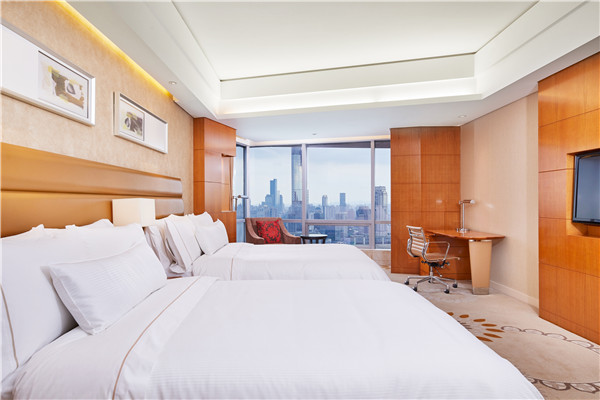


1. Engaged in the hotel industry for 28 years, you must have a wealth of experience of management in hotel revenue management, financial management, and F&B operations. Could you please share some with us? And how do you plan to integrate your hotel management concepts with the hotel culture of The Westin Nanjing?
I started my career back in the 90's in Switzerland. I worked as a chef's apprentice in a small hotel in St. Moritz. It was clear to me from a very early stage that I wanted to have a career in this amazing industry. I traveled around Europe and worked in England and France before I started my hospitality management studies. It was after hotel management school that I started to work for Starwood, now part of the Marriott family. I have worked for Starwood for more than 18 years in different brands in Europe and Asia. I have worked for Sheraton, Luxury Collection, Westin, Le Meridien and St. Regis. Since the beginning of my career, I have worked mainly in operations. I started in the kitchen, then worked as a waiter, as a night auditor, in finance and engineering as well as purchasing and F&B management. Our business is so diverse and a manager needs to master so many different disciplines. That is actually what I find so exciting in our profession. Over the years I have had the opportunity to broaden my knowledge in different disciplines and all the challenges I have encountered so far helped me to learn and develop more skills. But what my career offers me is far more than that; it gives me the opportunity to cultivate talented associates, and to witness how they have developed from unseasoned to senior level, as these associates will have a major impact on the future development of the hospitality industry. I work for a global company at a recognized brand. However, every hotel has individual needs and it is therefore important to adapt every strategy to the needs of our customers and the market we operate in. For me, it is important to show my employers a long-term strategy which leads to profit improvements over time. My philosophy has always been to be a little better than yesterday. Learning is key not only in business, but for one's social life as well. Westin is a great brand with a strong identity; our signature wellness programs helps guests eat, sleep, move, feel, work and play well while they are on the road. The Westin Nanjing enjoys a uniquely superior location in Nanjing’s CBD, facing the Purple Mountain and overlooking Xuanwu Lake, and offers a stunning view of Xuanwu Lake from each of its guest rooms. It is not only an advantageous geographic location which helped The Westin Nanjing maintain customer loyalty, but also the strong brand identity tightened the customers’ bonding with the hotel, keeping the brand's values alive while motivating team members to deliver to the best of their ability every day.
2. Westin has always been a distinctive brand with rich culture. We have heard that you are not only fond of mobile photography, but also interested in video shooting and art design. Could you briefly introduce their benefits to hotel brand promotion, market operation and positioning?
As I mentioned before, I started as a chef. I love cooking and being innovative in the kitchen. Seeing the result of your work dressed up on a plate is a great feeling. When I transferred into management, the strategies and daily work did not have immediate results but rather showed results over time. I missed seeing the result of my work at the end of the day and thus I explored even more photography. It gave me pleasure to be able to create something myself that I liked and could keep as a memory. My family has a long tradition in art and I have learned a lot from my mother. Over time the technology that enabled us to be creative has evolved and I transitioned from analog, to digital, and now mobile photography. I am amazed, especially having experienced the evolution of photography over the years, at what one can now do with the phone alone. Over time I realized that an ideal combination was to use not only my management knowledge, but also my photography skills for work. We work in a business where we sell hotel experiences and emotions. These experiences and emotions shape the hotel guests’ perceived value, which is the outcome of their consumption experience. The best way to evoke emotions in the decision process is with pictures and videos. Design and perceived beauty follow subconscious rules which trigger emotions, and that is what I like about the visual medium. In these recent few years, the trend of digital marketing has gone worldwide. In China, we have been witnessing the dizzying speed of development of digital marketing. Constantly changing marketing modes are active in Wechat, Weibo, video apps, etc. In the hospitality industry, this influence has become even more apparent when we face our hotel guests, especially increasingly younger guests. Fortunately, technology is giving everyone an opportunity to be part of engagement and marketing, helping brands and hotel businesses to succeed.
3. We know that you are expert at discovering and learning new things. For instance, you often share with your team some useful solutions, advanced apps or soft wares you frequently use. What do you share with your team most? What do you expect them to present in terms of mental outlooks, working attitudes, problem-solving thinking under your leadership?
This is an interesting question and one that cannot be answered in short, but I will try to summarize. There are basic requirements that I expect from everyone: punctuality, engagement, good manners and a willingness to learn. I believe that this is the minimum standard that is required to work in hospitality. The next level then depends on the position someone holds or aspires to, and what it requires from the individual. In general, I want my team to come up with solutions and ideas on how to solve problems or innovate our products by themselves. Creativity and unconventional ideas have always attracted me. We often talk about what is expected of ourselves and our teams. Let me put it this way; if we were trees that are expected to grow and carry a lot of fruits, do we allow enough space for the roots to grow? Does the plant have enough light and water? A gardener spends most of his time cultivating his plants. In a similar way, it is important to give directions without suffocating our people. They should be given opportunities to evolve and try things by themselves so they can learn from both their successes and failures. Some ideas will work and some will not. Failing is as important as winning. If someone has never failed, then he was most probably not keen on leaving his comfort zone to take risks and try something new. The software or applications you mentioned have the sole purpose of making life easier or giving reassurance during the decision-making process. Analytical software is so important nowadays to convince other stakeholders that the risks involved in the decision are minimized and that the outcome shows a return.